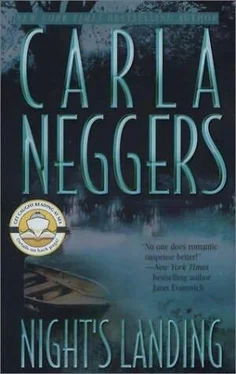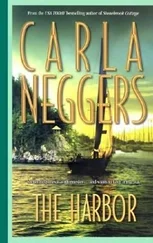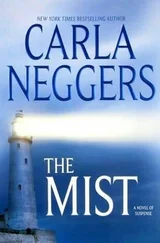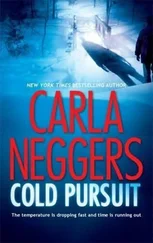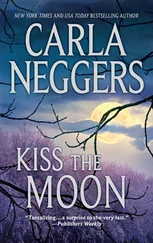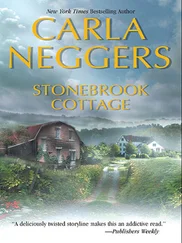Sarah laughed.
“I think Nate liked following you. Gave him something to do. He does not tolerate idleness well.” Juliet got to her feet and stretched her arms over her head. “Which should be a warning to you.”
Not knowing what to say, Sarah peeked in on her brother. He looked better. Not well, but better. She wondered if he wanted her out of town not so much because of snipers in the park, but because of the reputation of his senior deputy-but that was a lot of silliness. She rejoined Juliet in the hall and set out to her apartment for another night with the fish and the plants.
John Wesley Poe had heard that the junior senator from Massachusetts, elected in November along with the new president, was one impressive cuss, and it was true, even more so in person. Hank Callahan strode into Wes’s private study-Wes wanted to keep this visit as quiet and unofficial as possible-with the confidence of someone who’d come under fire in more ways than one in his forty-something years. Even his enemies said he was a man of the highest integrity, a retired air force rescue helicopter pilot whose first wife and young daughter were killed in a car accident while he was serving overseas.
Last fall, he’d stumbled into the headlines twice, once before the election, once after-and both times in dangerous incidents involving the Winter family of Cold Ridge, New Hampshire. His now-wife, Antonia, when she encountered a stalker. Then his sister-in-law, Carine, when she stumbled upon a murder.
Now, here was another Winter in trouble. This time it was the brother, Nate.
“Mr. President,” Hank Callahan said, remaining on his feet, his military bearing evident. “It’s good to see you.”
Wes rose from the sofa and shook hands with the younger senator. “Thank you for stopping by. Here, have a seat. I won’t keep you. I understand that one of the marshals shot yesterday in Central Park is your brother-in-law.”
Callahan took the most uncomfortable chair in the room, his signal, Wes thought, that he didn’t plan to stay long. “Nate Winter is my wife’s brother, yes.”
“He’s doing all right? You’ve seen him?”
“He’s in good shape. The other marshal-”
“Rob Dunnemore is a family friend.”
Wes didn’t mince words. The story had just broken. It was all over the news now, but from his blank reaction, either Callahan hadn’t heard of Wes’s relationship with the wounded deputy or was pretending he hadn’t. “I didn’t realize he was a friend. I’m sorry.”
Wes had just issued a statement through his press secretary. It was a balancing act. He didn’t want to give the impression, no matter how unintentionally, that anyone in his administration-anyone in law enforcement-believed that the shooting in Central Park yesterday was in any way connected to him.
“I understand Rob’s had a rough time of it,” Wes said. “We came close to losing him yesterday.”
“Antonia-my wife-says his chances for a full recovery grow with every hour he goes without complications, especially from blood loss.”
“Did you see him? Rob-how did he look? Under the circumstances, it’s difficult for me to go up there myself. There’s nothing political here, by the way. This is an entirely personal conversation.”
But their surroundings begged the question-was anything personal, was anything private, when one was president?
Callahan stayed unreadable. “Of course, Mr. President. No, I didn’t see Deputy Dunnemore myself.”
Wes nodded, wondering why he’d bothered to invite Callahan over to the White House. To assuage his own guilt at having neglected Rob in recent years? Wes hadn’t approved of him becoming a marshal. Rob’s own father hadn’t approved, although Stuart Dunnemore’s reasons were different and he’d have been more subtle about his objections. The kid was smart, well connected, personable. He could do anything with his life. Why spend it in the gutter catching criminals? Now that he was in the Oval Office, Wes thought, he had a different view. The work the USMS did was vital, and it needed good people like Rob Dunnemore.
And that was what scared Rob’s father, Wes knew. He wasn’t worried so much that Rob could do better-he was worried his only son was a throwback to the wild Dunnemores of the past, a mix of loggers and riverboat workers who lived hard and died young. To his own brother, who’d died a hero on Omaha Beach.
“You and your wife are expecting a child?” Wes asked casually.
His question seemed to catch Callahan off guard. “Just a few more weeks to go.”
“That’s wonderful. Nervous?”
The young senator didn’t answer at once, but he obviously understood the subtext. In light of the tragedy of losing his firstborn, was he nervous about this baby? Wes’s own wife had lost all four of their babies. They’d almost saved the last one, a baby girl. People told him, or at least implied, it wasn’t like losing a three-year-old, as Callahan had. Wes knew it was probably true. But miscarriage and stillbirth were their own special pain, their own special hell.
And the effect it’d had on Ev. She’d tell him he hadn’t done anything wrong-it was her, all her. She’d let go some of the self-blame and self-pity since he’d entered public service and she’d taken on her own issues, devoting herself to children’s health, poverty and underachievement.
They both considered the Dunnemore twins as close as they would come to having children of their own. They’d watched them grow up, attended their birthday parties and graduations, took them out on the river-and they’d gone to funerals together. Granny Dunnemore’s. Leola’s, Violet’s. Thank God he and Ev hadn’t had to face Rob’s funeral.
Callahan managed a brief smile. “I guess a little nervousness is to be expected, Mr. President.”
“Good luck to you. Let me know, will you?”
“I’d be glad to. Mr. President-”
“I don’t know anything more about yesterday’s shooting than you do,” Wes said, anticipating the senator’s question. “Did you happen to see Sarah Dunnemore, Rob’s sister?”
Callahan shook his head. “As soon as we realized Nate was all right, we got out of his way.”
“She’s an historical archaeologist. She doesn’t have a background in law enforcement, the military, politics. She’s just back from a research trip in Scotland. She’s spent years researching the house where I grew up and the family that raised me.” He sighed, picturing her hearing the news about her brother. “But she’s tough. I keep telling myself that.”
Callahan maintained his correct bearing. “I’m sure it’s a difficult time for all of Deputy Dunnemore’s friends and family.”
Wes nodded, sighing heavily. “It’s strange how we go through these times in our lives when it’s as if we’re under siege. I can’t imagine how you all must have felt when you found out your brother-in-law had been shot, even if he was only slightly wounded. After what you went through last fall-”
“It hasn’t been easy, but we’re relieved he’s okay.”
“Deputy Winter-he’s solid?”
“Rock solid, Mr. President.”
“We don’t know yet if he was the target, or if Rob was-or if they both were. Well, the FBI and the marshals won’t leave a stone unturned in searching for whoever did the shooting. That much we know for sure.”
Wes pictured Granny Dunnemore, as everyone called her, at her stove in the beautiful log house on the Cumberland River that her late husband had built just to attract a woman. They’d owned a sawmill that went out of business in the Depression. Not long after, Web Dunnemore died in a logging accident. Pearl Dunnemore always preferred her simple ways and said she never missed the mill. She remained a widow, without self-pity, for over fifty years. She made the best white beans in middle Tennessee. Even now, Wes could smell them simmering on her stove.
Читать дальше
Конец ознакомительного отрывка
Купить книгу
